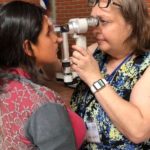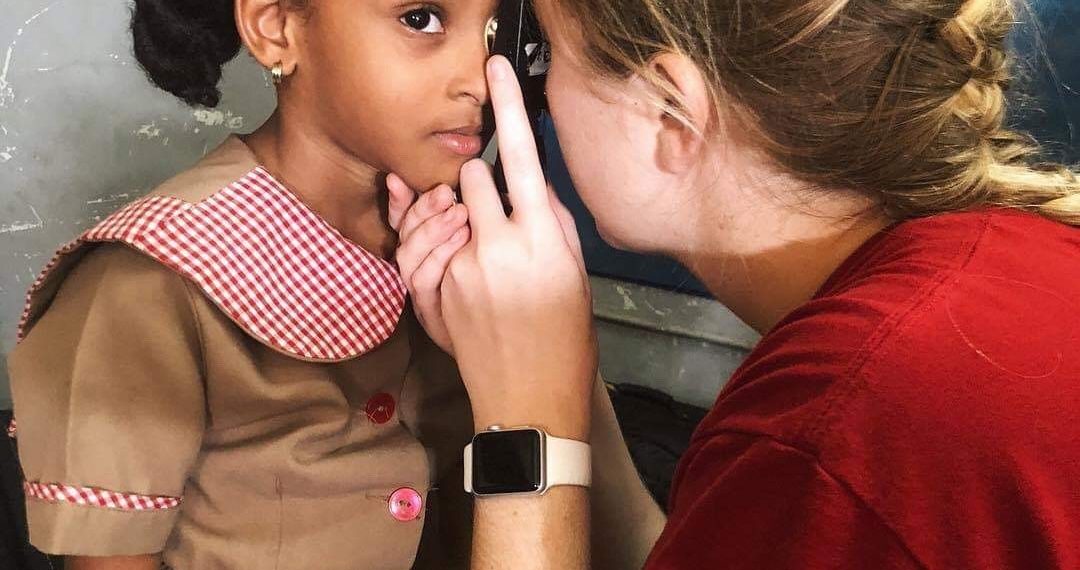The month of April is commemorated as Women’s Eye Health and Safety Month according to PreventBlindness.org, the oldest non-profit eye organization in the US. The goal is two-fold; to educate the public on women’s increased risk of eye health issues and encourage prophylactic steps to prevent vision loss. With the ongoing pandemic, there is a growing concern of gender and financial disparities that can impede women’s access to eyecare.
Immediate Past President of VOSH/International Dr. Tracy Matchinski comments that, in addition, women have an important role in their communities including having and raising children, managing the household, and often working outside the home to support their families. There are many publications that show women are one of the groups that are less likely to have access to eyecare. This is problematic because women are more likely to have eye health and vision problems. Often during VOSH clinic trips, Dr. Matchinski has seen women not coming into the clinic and wanting their children and other families to get the care first. Women must remember to take care of themselves so they have the best vision and eye health, and they can continue to care for their families and contribute to their communities.
Women have a higher prevalence of major vision problems even after controlling for age including age-related macular degeneration, autoimmune diseases (multiple sclerosis related optic neuritis, Systemic lupus erythematosus or Sjögren’s Syndrome), dry eye disease, idiopathic intracranial hypertension, pregnancy related eye issues, menopause related eye issues, and thyroid eye disease. Cataracts, glaucoma, and refractive error (myopia, hypermetropia, and presbyopia), can also hinder eye health, vision, and quality of life.


Simple steps to support your eye health and vision:
Do not smoke
Eat a healthy diet high in antioxidants
Wear sunglasses/use UV protection
Schedule an eye exam


Progress is being made of course. For example, one of the conditions that commonly affects women, thyroid eye disease, has recently had exciting developments with the FDA approval of Tepezza (teprotumumab-trbw) to help modify disease outcomes of thyroid eye disease, such as improvement in proptosis and diplopia.
It is important that women prioritize their eye health to detect vision problems early. Timely treatment for most eye abnormalities and diseases can greatly decrease the risk of permanent vision loss.
Written by: Valerie Tran Rein, OD

